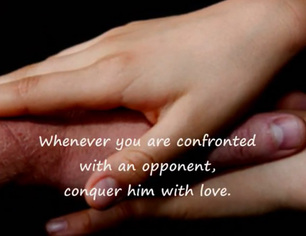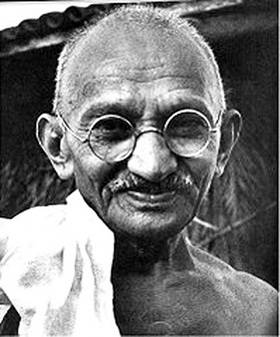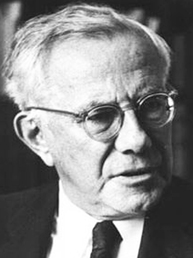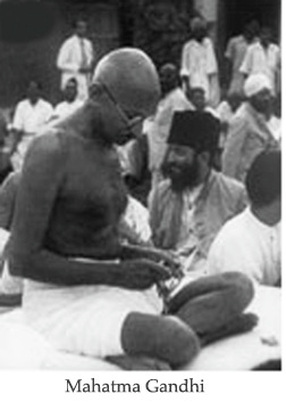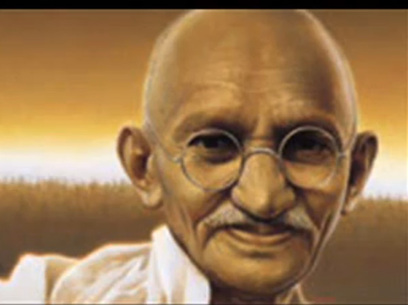“Be the change you want to see in the world.”
Mahatma Gandhi
The Power of One
Mahatma Gandhi
The Power of One
≈ The chaotic world ≈
≈ Is only a distraction ≈
≈ Faith provides the path ≈
≈ Brothers and sisters ≈
≈ Strive now to bring worldly peace ≈
≈ Let love lead your faith ≈
≈ That which the eyes see ≈
≈ Is an man-made distraction ≈
≈ Strive to live your faith ≈
Thomastwo Sacred Haiku (5-7-5)
≈ Is only a distraction ≈
≈ Faith provides the path ≈
≈ Brothers and sisters ≈
≈ Strive now to bring worldly peace ≈
≈ Let love lead your faith ≈
≈ That which the eyes see ≈
≈ Is an man-made distraction ≈
≈ Strive to live your faith ≈
Thomastwo Sacred Haiku (5-7-5)
"The first duty of
love is to listen"
Paul Tillich: Christian Theology 20th Century
"The Courage to Be" (published 1952)
Paul Tillich: Christian Theology 20th Century
"The Courage to Be" (published 1952)
Thomas Merton
"We live in crisis, and perhaps we find it interesting to do so. Yet we also feel guilty about it, as if we ought not to be in crisis. As if we were so wise, so able, so kind, so reasonable, that crisis ought at all times to be unthinkable. It is doubtless this "ought," this "should" that makes our era so interesting that it cannot possibly be a time of wisdom, or even of reason. We think we know what we ought to be doing, and we see ourselves move, with the inexorable deliberation of a machine that has gone wrong, to do the opposite."
Thomas Merton, Conjectures of a Guilty Bystander (New York: Image) 66
Thomas Merton: Thought for the Day:
"If we really sought truth we would begin slowly and laboriously to divest ourselves one by one of all our coverings of fiction and delusion: or at least we would desire to do so, for mere willing cannot enable us to effect it."
Thomas Merton, Conjectures of a Guilty Bystander (New York: Image) 68
"We live in crisis, and perhaps we find it interesting to do so. Yet we also feel guilty about it, as if we ought not to be in crisis. As if we were so wise, so able, so kind, so reasonable, that crisis ought at all times to be unthinkable. It is doubtless this "ought," this "should" that makes our era so interesting that it cannot possibly be a time of wisdom, or even of reason. We think we know what we ought to be doing, and we see ourselves move, with the inexorable deliberation of a machine that has gone wrong, to do the opposite."
Thomas Merton, Conjectures of a Guilty Bystander (New York: Image) 66
Thomas Merton: Thought for the Day:
"If we really sought truth we would begin slowly and laboriously to divest ourselves one by one of all our coverings of fiction and delusion: or at least we would desire to do so, for mere willing cannot enable us to effect it."
Thomas Merton, Conjectures of a Guilty Bystander (New York: Image) 68
Mahatma Gandhi
“Nonviolence is a weapon of the strong”
Mahatma Gandhi
1869 - 1948
Philosopher and Spiritual Leader
internationally esteemed for his doctrine of nonviolent protest
Mahatma Gandhi
1869 - 1948
Philosopher and Spiritual Leader
internationally esteemed for his doctrine of nonviolent protest
Mahatma Gandhi
"Man's nature is not essentially evil. Brute nature has been known to yield to the influence of love. You must never despair of human nature."
"You must not lose faith in humanity. Humanity is an ocean; if a few drops of the ocean are dirty, the ocean does not become dirty."
"Man's nature is not essentially evil. Brute nature has been known to yield to the influence of love. You must never despair of human nature."
"You must not lose faith in humanity. Humanity is an ocean; if a few drops of the ocean are dirty, the ocean does not become dirty."
"That
is straight out of Gandhi. If people are not afraid of the dictatorship, that
dictatorship is in big trouble. … If you fight with violence, you are fighting
with your enemy’s best weapon, and you may be a brave but dead hero." Gene Sharp
Gene Sharp, a leading theoretician of nonviolence, whose writings inspired the student movement in Egypt, commenting on their discipline in remaining peaceful and their lack of fear. “Shy U.S. Intellectual Created Playbook used in Revolution”
By: Sheryl Gay Stolberg (Source: New York Times 2/16/11)
Gene Sharp, a leading theoretician of nonviolence, whose writings inspired the student movement in Egypt, commenting on their discipline in remaining peaceful and their lack of fear. “Shy U.S. Intellectual Created Playbook used in Revolution”
By: Sheryl Gay Stolberg (Source: New York Times 2/16/11)
≈ When you choose a path ≈
≈ Of selfless love for others ≈
≈ Your heart will open ≈
Thomastwo - Sacred Haiku (5-7-5)
≈ Of selfless love for others ≈
≈ Your heart will open ≈
Thomastwo - Sacred Haiku (5-7-5)
"Some men's lives are too great and noble to descend to the low level of being merely successful. The animal must adapt itself to the environment, but the religious man transcends his environment and in this way escapes the limitations of the present material world through this insight of divine love. This concept of love generates in the soul of man that superanimal effort to find truth, beauty, and goodness; and when he does find them, he is glorified in their embrace; he is consumed with the desire to live them, to do righteousness."
Urantia 196:3.29
Urantia 196:3.29
"Being" : APR American Public Media - Krista Tippet
We seek a deeper sense of the human dynamics unfolding on the streets of Cairo and elsewhere — and we ask what response it deserves from us, the watching world. What if, rather than the clash of civilizations some have been fearing, we are really living through a crash and rebirth of human cultures, hopes, and dreams? For the past decade, anthropologist Scott Atran has been listening to terrorists — and he's also been listening to the hopes and dreams of young people from Indonesia to Egypt.
The Program on "Being" with Krista Tippet:
We seek a deeper sense of the human dynamics unfolding on the streets of Cairo and elsewhere — and we ask what response it deserves from us, the watching world. What if, rather than the clash of civilizations some have been fearing, we are really living through a crash and rebirth of human cultures, hopes, and dreams? For the past decade, anthropologist Scott Atran has been listening to terrorists — and he's also been listening to the hopes and dreams of young people from Indonesia to Egypt.
The Program on "Being" with Krista Tippet:
≈ Strive to follow love ≈
≈ Where ever it will lead you ≈
≈ It is your true home ≈
≈ Where ever it will lead you ≈
≈ It is your true home ≈

